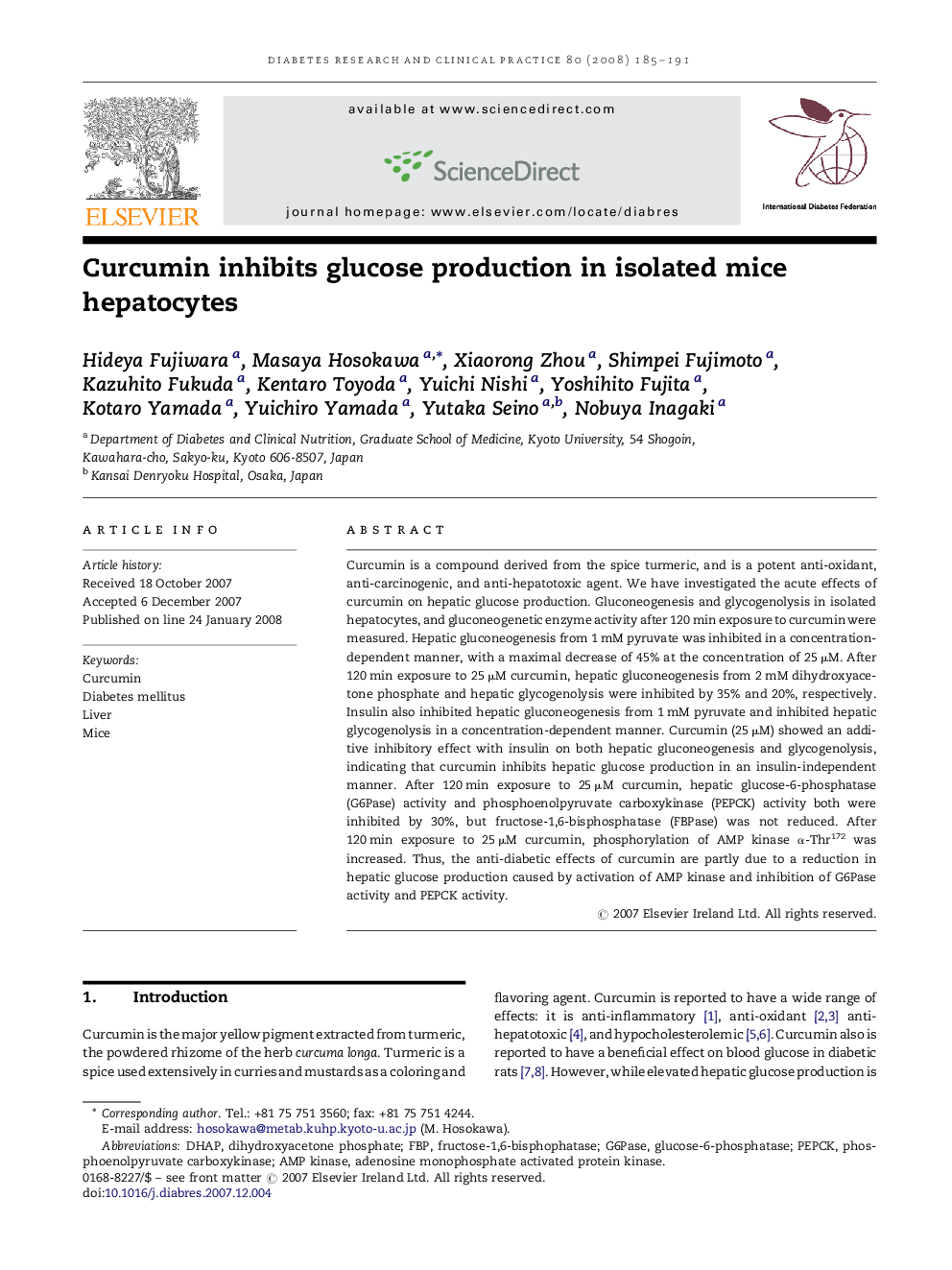| Article ID | Journal | Published Year | Pages | File Type |
|---|---|---|---|---|
| 2798341 | Diabetes Research and Clinical Practice | 2008 | 7 Pages |
Curcumin is a compound derived from the spice turmeric, and is a potent anti-oxidant, anti-carcinogenic, and anti-hepatotoxic agent. We have investigated the acute effects of curcumin on hepatic glucose production. Gluconeogenesis and glycogenolysis in isolated hepatocytes, and gluconeogenetic enzyme activity after 120 min exposure to curcumin were measured. Hepatic gluconeogenesis from 1 mM pyruvate was inhibited in a concentration-dependent manner, with a maximal decrease of 45% at the concentration of 25 μM. After 120 min exposure to 25 μM curcumin, hepatic gluconeogenesis from 2 mM dihydroxyacetone phosphate and hepatic glycogenolysis were inhibited by 35% and 20%, respectively. Insulin also inhibited hepatic gluconeogenesis from 1 mM pyruvate and inhibited hepatic glycogenolysis in a concentration-dependent manner. Curcumin (25 μM) showed an additive inhibitory effect with insulin on both hepatic gluconeogenesis and glycogenolysis, indicating that curcumin inhibits hepatic glucose production in an insulin-independent manner. After 120 min exposure to 25 μM curcumin, hepatic glucose-6-phosphatase (G6Pase) activity and phosphoenolpyruvate carboxykinase (PEPCK) activity both were inhibited by 30%, but fructose-1,6-bisphosphatase (FBPase) was not reduced. After 120 min exposure to 25 μM curcumin, phosphorylation of AMP kinase α-Thr172 was increased. Thus, the anti-diabetic effects of curcumin are partly due to a reduction in hepatic glucose production caused by activation of AMP kinase and inhibition of G6Pase activity and PEPCK activity.
